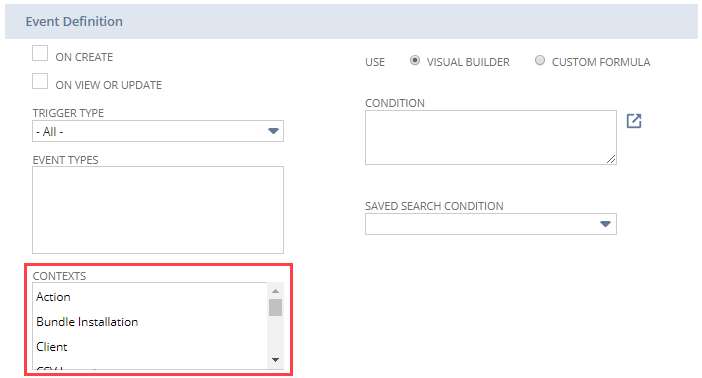Execution Contexts and Workflows
Execution contexts tell you how or when a SuiteScript script or SuiteFlow workflow gets triggered. For example, a script might execute because of something in NetSuite, or because of something else, like a web services integration. You can use execution context filtering to make sure your scripts or workflows only run when needed.
You can specify that a script or workflow should execute only in certain contexts, which can improve performance in contexts where the script or workflow isn't required. You can also determine the execution context for a running script programmatically and use different logic depending on the context. For more information about execution contexts, see Execution Contexts.
There are many execution contexts available in NetSuite. For a full list of execution contexts, see Execution Context Types.
Set the context for workflow initiation, actions, and transitions using the Contexts field on the workflow, action, or transition definition pages.
The following screenshot shows the Contexts field on the workflow definition page. This workflow doesn't initiate unless a sales order is created on the Web Store:

More Information About Execution Contexts
Use the following table to get more information about working with context types in a workflow:
|
Task |
For more information |
|---|---|
|
Specify the context type in a workflow definition |
|
|
Specify the context type in an action or transition |
|
|
Get a list and description of all context types |
|
|
Get examples of using the CSV Import, User Event Script, and Custom Mass Update context types |